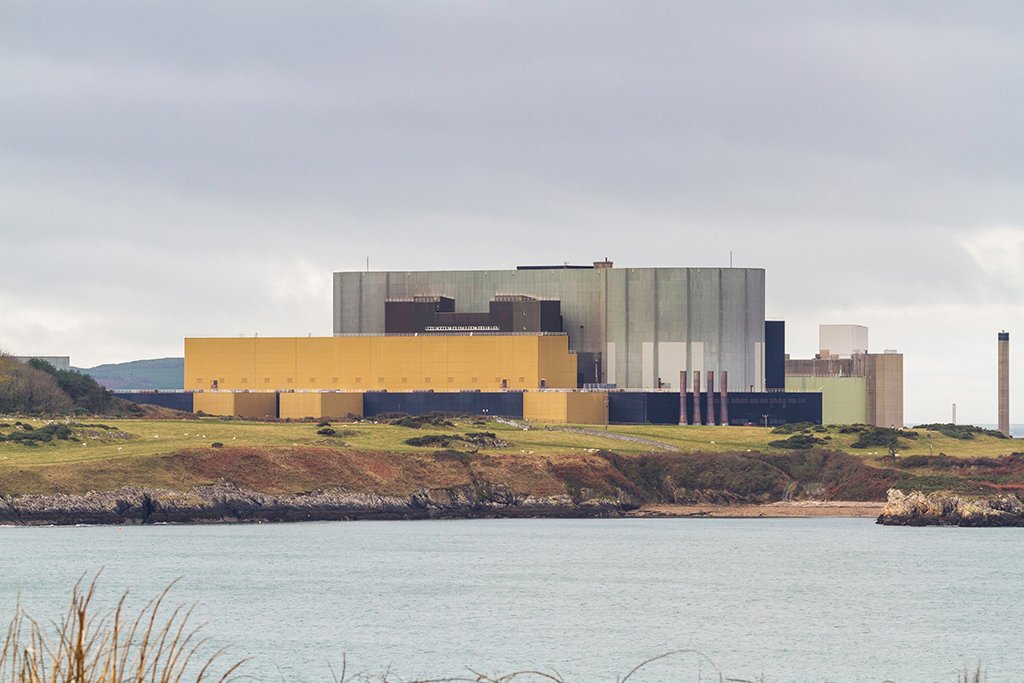Wylfa on Anglesey has been confirmed as the site for the UK’s first small modular nuclear reactor (SMR), in a government-backed scheme worth more than £2.5bn and expected to create thousands of jobs in North Wales.
The project will be delivered by Great British Energy – Nuclear (GBE-N), the publicly owned delivery body, with an initial three reactors planned from Rolls-Royce SMR, subject to final contract. The site could ultimately host up to eight.
The announcement marks the first deployment under the UK’s small modular reactor programme and comes 20 months after GBE-N acquired the Wylfa and Oldbury nuclear sites from Hitachi in March 2024.
Hitachi had abandoned its own new-build plans at Wylfa in 2020.
The government said Wylfa would play a central role in its clean energy strategy, describing the scheme as a once-in-a-generation investment.
Chancellor of the Exchequer Rachel Reeves said it would “fire up the Welsh economy”, while Energy Secretary Ed Miliband called it “a landmark investment” that showed the UK “can still build big projects that stand the test of time”.
Early site activity is scheduled for 2026, with the aim of supplying power to the grid by the mid-2030s. Peak construction is expected to support up to 3,000 jobs.
Rolls-Royce SMR, whose design was selected as preferred bidder earlier in 2025, said the programme would be delivered using a modular construction approach to minimise disruption and reduce risk.
Director of the Civil Engineering Contractors Association (CECA) Wales Ed Evans said: “New nuclear at Wylfa will require major investment in enabling works, transport links, grid connections and local infrastructure – all areas where our members have the expertise to deliver safely, efficiently and to the highest environmental standards.
“To maximise the benefits, government and clients must now work closely with industry to set out a clear pipeline, including realistic timescales, risk allocation and procurement routes that allow SMEs as well as major contractors to compete and invest in people, plant and innovation.”
GBE-N was established to lead a new fleet of small and advanced nuclear reactors, and is also responsible for identifying sites for further large-scale nuclear development beyond Sizewell C.
It is expected to report on potential locations across the UK, including Scotland, by autumn 2026.
The Wylfa announcement follows years of failed attempts to bring new nuclear development to North Wales.
The government said the new publicly backed programme would finally realise the site’s long-term potential.
The original Magnox station at Wylfa closed in 2015.
In March 2024, GBE-N confirmed it had agreed to buy the Wylfa and Oldbury sites from Hitachi, and simultaneously opened the tender process for SMR technology providers. That process invited bids from six shortlisted firms, including EDF, Westinghouse and Holtec, the latter of which has named Balfour Beatty as construction partner for its SMR-160 design.
Rolls-Royce’s reactor was selected later in 2024 and is expected to form the basis of a UK fleet. It has already secured an export deal with Czechia, where state energy firm ČEZ has taken a 20 per cent stake in Rolls-Royce SMR.
GBE-N chair Simon Bowen said the Wylfa project would lay the foundation for a nationwide SMR rollout. He described the programme as a “fleet-based approach” that would support energy security and industrial growth.
The government has committed over £2.5bn to the SMR rollout, alongside major investment in Sizewell C. It has also reformed planning rules to enable SMR deployment on a wider range of sites.
The Wylfa announcement forms part of a broader UK ambition to generate 25 per cent of energy from nuclear by 2050.
A civil nuclear roadmap published in early 2024 set out a pipeline of projects to meet this target, including accelerated work on carbon capture, hydrogen production and grid upgrades.
First Minister of Wales Eluned Morgan said the decision would deliver “secure jobs and secure energy for the next generation”, while Welsh Secretary Jo Stevens described it as “one of the largest public investments in Welsh history”.
The government says the Wylfa SMRs will support wider export potential, help meet net-zero targets, and reduce future electricity bills by cutting reliance on fossil fuels.
Source: Department for Energy Security and Net Zero announcement

